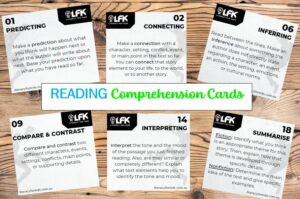How to Make Knowledge Stick

Why do students forget? And what can we do to help them remember? These questions are likely at the forefront of many teachers’ and parents’ minds.
How can you help to prepare our students for exams?
In his blog, ‘Deliberately difficult – why it’s better to make learning harder’, David Didau asks which of these study patterns is most likely to result in long-term learning:
1) study study study study – test
2) study study study test – test
3) study study test test – test
4) study test test test – test
He says, “The most successful pattern is in fact No. 4. Having just one study session, followed by three short testing sessions – and then a final assessment – will outperform any other pattern.”
Traditionally, schemes of work and curricula have been designed according to study pattern one but there is evidence to suggest a rethink.
As teachers, we often moan that after an apparently successful lesson, series of lessons and/or assessment, students have forgotten content (how many times have you felt frustrated at a Year 7 student’s apparent inability to use speech marks?)
Let’s have a look at 5 ideas for ‘making knowledge stick’ and effective revision tips in the run-up to exam season.
1) Knowledge Organisers
Organise the key knowledge you want students to know into a table/graphic organiser that they have throughout the term. You can click on this resource, where we have included templates for students or organise their learning. This is used to test, set homework and self-quiz which leads to…
2) Self quizzes
Using a knowledge organiser, students read, cover, recite and then check their answers for homework knowing they will be tested on this knowledge and that teachers will check for evidence of self-quizzing. They add any missed information in a different colour pen to show where the gaps in their knowledge are.
What’s really beneficial here is we want to get students into good revision habits from Upper Primary – we want to eliminate the ‘You can’t really revise for English’ excuse! Here is a template that you can use as a resource for older learners.
3) Low-stakes, low-pressure testing
Starter quizzes, cloze activities and cold-call questioning are great ways to test students’ knowledge without the pressure of grades and formal assessment.
4) Memory Platforms
I came across this great technique from Andy Tharby, which follows this model ~
Q1 – Q3 – retrieve key knowledge from the last lesson.
Q4 – retrieve key knowledge from last week.
Q5 – retrieve key knowledge from last term.
Q6 – retrieve key knowledge from last lesson and connect it to knowledge from last term. (This really challenges them to have mastered the content and often elicits some very creative responses!) This activity is a great way to interleave content.
‘Memory platform’ tasks could consist of:
- Explain how the poem we learnt about yesterday relates to the novel we read last term.
- A tell B five things you remember about ‘x’; now B tell A five things you remember about ‘y’.
- How does the character relate to a person you know?
5) Lessen the cognitive load
The clue here is reducing the level of information to an optimal amount, which avoids overloading or boring students, and is crucial to effective learning. Introduce new information in small steps, presenting worked examples and offering images and text simultaneously so that the learner isn’t trying to remember too much.
We hope that using these techniques both in class and at home means that students are well prepared (and confident too!) entering the assessment phase this semester. A bonus is these ideas are also low input in terms of planning and marking – giving teachers extra time at this stressful time of year!
Want your students to finish strong in their literacy? Want more from your literacy program? Contact us for a 30-day free trial in your school or classroom. New schools receive these great ‘Turn and Talk’ comprehension cards for their classroom ~

Student Comprehension Cards
Check out our blogs for more ideas and tips.
Identify Comprehension Gaps with these great cards
Steps to Successfully Support Disengaged Learners
See us featured in The Educator Australia magazine
Research confirms that early reading boosts literacy
Boys Love LFB – Here’s what they have to say!
Get boys reading in the digital age
Why write? Tips for reluctant writers
Brought to you by Tanya Grambower


